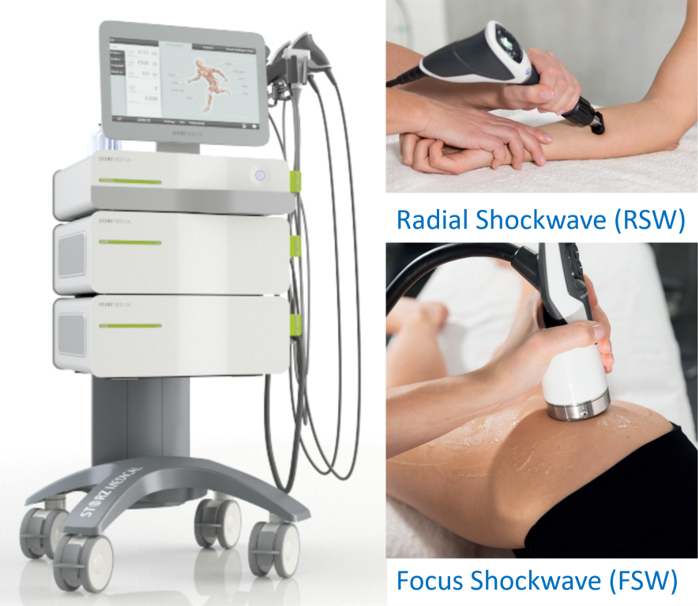ACUPROLO INSTITTUTE
22750 Hawthorne Blvd. Suite 218
Torrance, CA 90505
2001 S. Barrington Ave. Suite 205
Los Angeles, CA 90025
Phone: (310) 878-2874
ESWT is a non-invasive procedure that uses acoustic waves, through vibration of the tissue (mechanotransduction), to treat a variety of medical conditions. High energy shock waves have been used since 1980 to disintegrate kidney stones. However, low-energy shock waves are applied to painful body regions, where they exert their curative action. The device is currently approved by the Food and Drug Administration (FDA) for treatment of plantar fasciitis. However, there is growing body of scientific data and evidence that ESWT may be effective in treating many other musculoskeletal pain and injuries beyond plantar fasciitis. ESWT eliminates pain, restores mobility, and improves quality of life.
Shock waves can accelerate the healing process in the body. They have local anti-inflammatory effect, stimulate metabolism and improve blood circulation to injured tissue by stimulating new blood vessel growth and releasing growth factors to enhance tissue repair. Some damaged tissue can regenerate and fully heal with ESWT.
Tennis or golfer’s elbow, patellar tendinitis (jumper’s knee), shin pain/tibial stress syndrome, achilles tendonitis, plantar fasciitis, trigger points, fascial pain, chronic neck, back, and shoulder pain.
FSW has a large focal zone and increased targeting precision. It is used to treat deep structures and affecting bone. Its pressure wave can penetrate up to 8cm. Given FSW is more powerful in its energy depth, high energy range should be avoided around the areas of the lung and brain.
RSW or EPAT is used for superficial structures, such as myofascial trigger points, muscle injury/spasms of any joint and facial rejuvenation.
Redness, swelling or bruising to the treatment area, petechiae (minor superficial broken blood vessels), pain and discomfort, tendon tear or rupture after previous local steroid injection, nerve damage, causing decreased skin sensitivity or tingling.
Less than 18 years of age, open growth plate in the treatment area, local steroid injection in the past month, coagulation disorder or on medications that increase bleeding risks, any active tumor or malignancy in or near the treatment area, active infection in or near the treatment area, pregnancy, prosthetic device in the treatment area, presence of ischemic tissue overlying the treatment area, brain and lung tissue in the treatment area.
Ultrasound gel is applied to the treatment area to allow the shock waves to be introduced into the body without any loss of energy. After these preparations, a shock waves probe, applicator is applied over the painful region in a circular motion. Injured tissue area will cause some discomfort, such as a dull ache. The provider will ask you what level of discomfort sensation you are feeling on a scale of 1-10. Level between 4-6 is acceptable. You have full control over the intensity of the discomfort level.
Each therapy session takes between 10 and 30 minutes depending on the disorder to be treated and how many machines are being used. In general, an average of 3 to 5 treatments are necessary at twice a week, weekly or every other week interval.
No
To learn more about extracorporeal shock wave therapy, please visit www.eswt.info
